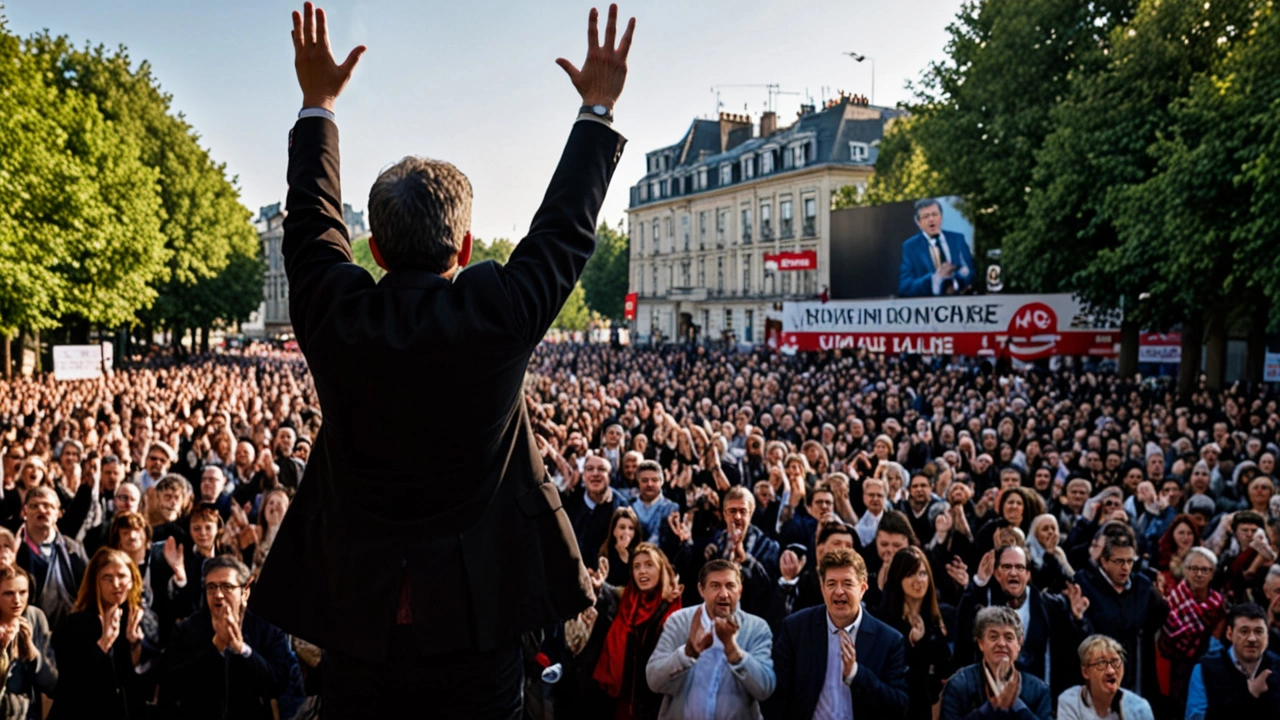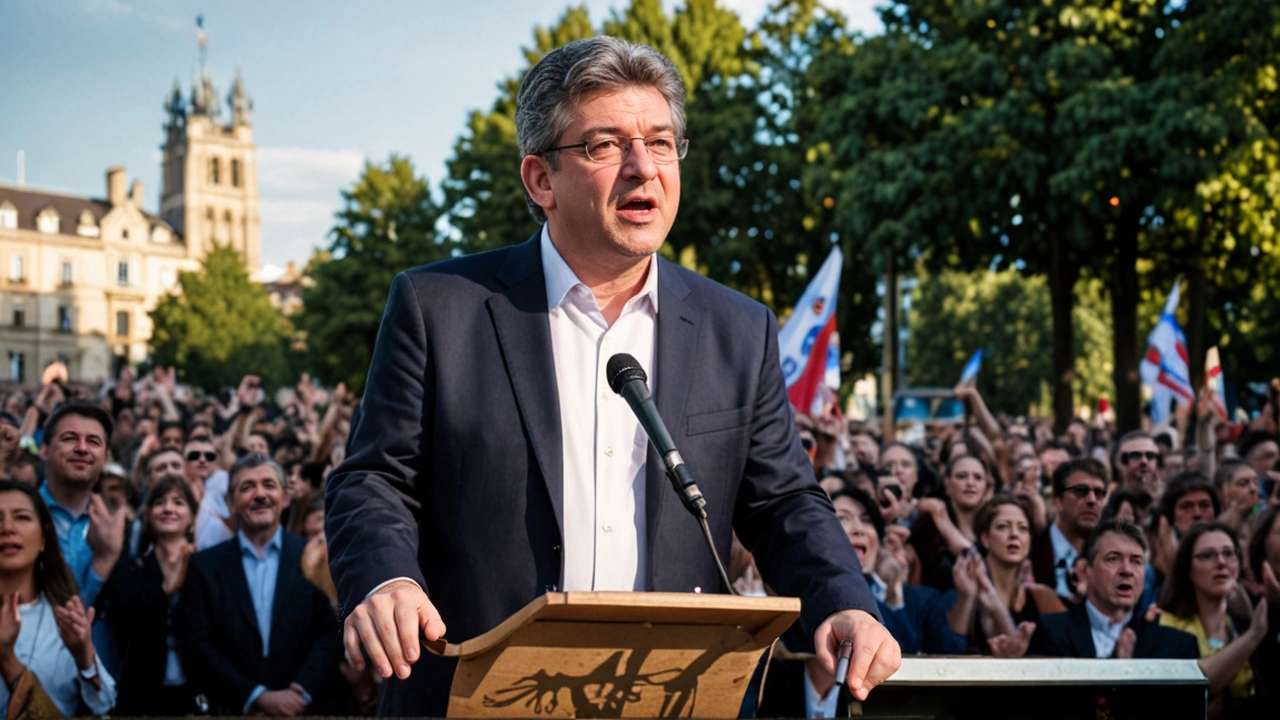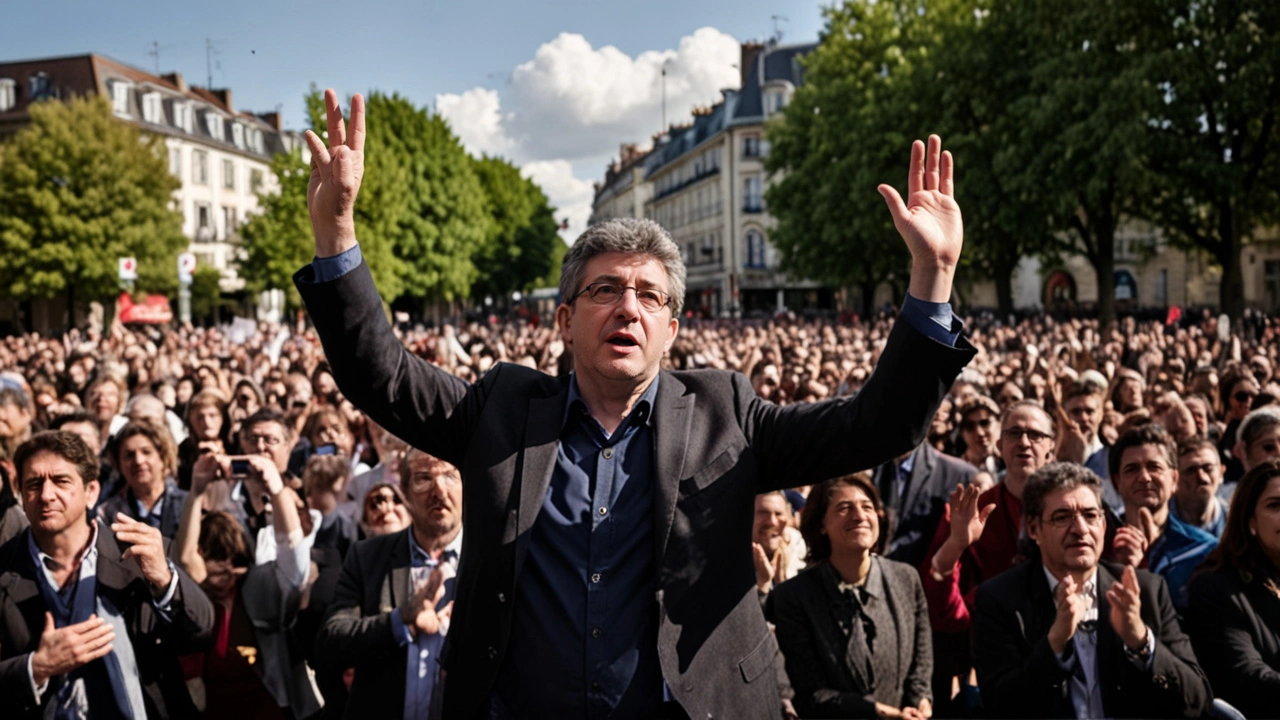The Complex Outcome of France's Legislative Elections
The recent French legislative elections have ended in a situation that many political analysts anticipated but hoped to avoid—a hung parliament. The second round concluded with the left-wing coalition New Popular Front (NFP) emerging as the largest bloc, securing 181 seats in the National Assembly. Following closely were President Emmanuel Macron's centrist alliance with 159 seats and the far-right National Rally taking 143 seats.
With none of these alliances achieving the absolute majority of 289 seats required to govern independently, the country is now facing the possibility of political paralysis. The current fragmentation signifies incremental challenges ahead in forming a stable government. Moreover, the parliamentary dispersal raises flags among both domestic and international stakeholders concerning governance and economic stability.
A Nation in Limbo
Prime Minister Gabriel Attal, recognizing the gravity of the situation, tendered his resignation. However, President Macron has requested that Attal remain in a caretaker capacity until a new government framework is established. This temporary arrangement serves to stabilize the country during this transitional period, albeit thinly veiling the broader crisis at hand.
France's constitution allows the President to appoint a Prime Minister; however, institutional norms necessitate that the appointed Prime Minister gather ample support within the National Assembly to circumvent potential no-confidence votes. This balance of power implies that Macron's next move is under intense scrutiny, as any overtly partisan choice could jeopardize what little stability remains.
The New Popular Front: Fragmented Yet Dominant
The NFP, composed of multiple leftist factions including the France Unbowed, Socialist Party, Greens, and Communist Party, has emerged as a leading force. Yet, its internal diversity could either be its strength or its Achilles' heel. Jean-Luc Mélenchon, the dynamic yet polarizing leader of France Unbowed, has openly aspired to the office of Prime Minister. While his leadership garners enthusiasm among left-wing supporters, his candidacy could exacerbate divisions within the Assembly.
Alternative candidates such as Marine Tondelier and Clémentine Autain are also under consideration, possibly as compromise options that might attract wider support. Still, forming either a minority government or obtaining tacit support from other political factions remains an intricate task. A minority government, if formed, would perpetually be under the threat of no-confidence votes, thereby exacerbating political fragility.

Economic Implications and Market Reactions
Financial experts are warily watching these developments. Political instability often correlates with economic vulnerability, and the fragmented parliament alarms those concerned with fiscal prudence. There are palpable fears that France might face downgrades to its sovereign rating, which could consequently increase borrowing costs and deteriorate economic conditions.
Interestingly, immediate market reactions have been somewhat positive. Investors appear to be taking a cautiously optimistic approach in the short term, perhaps speculating on impending policy compromises that might lead to substantial economic reforms. Nevertheless, the longer-term outlook remains highly uncertain and continues to hinge on the eventual configuration of the new government and its policy direction.

The Road Ahead: Prospects and Possibilities
So, what could come next in this convoluted political landscape? There are several potential scenarios, each with its own set of complexities and implications. One possibility is that the NFP might succeed in forming a minority government, relying on the inconsistent support of other factions to pass crucial legislation. While this route is fraught with risk, it could offer a temporary solution to the current impasse.
- Another scenario could unfold if Macron’s centrist alliance bridged gaps to form a grand coalition, although this seems less likely given the distinct ideological differences between the blocs.
- A third possibility might involve a series of tactical alliances, where support is rallied on an issue-by-issue basis, leading to a highly fragmented yet functional governance model.
Each of these scenarios presents its own challenges, and the eventual outcome will have lasting impacts on France's political, social, and economic domains. As the nation grapples with the uncertainties, all eyes remain on the evolving dynamics in the National Assembly and the strategic moves by its key power players.
The Stakes for the French People
Ultimately, the stakes are incredibly high for the French populace. Political stability is not merely an abstract concept; it translates into tangible outcomes such as legislative efficiency, economic policies, and social welfare programs. Prolonged instability could erode public confidence and foster a sense of disenchantment among people already grappling with myriad socio-economic challenges.
As France stands at this critical juncture, the importance of deft political maneuvering cannot be overstated. Leaders across the spectrum face the arduous task of balancing partisan interests with the greater good, a feat easier said than done.
In the coming weeks, the intricate negotiations, coalition-building efforts, and the strategic nominations for key positions will shape the trajectory of France’s political future. While the emerging picture is convoluted, one thing remains clear: the country is in for a period of significant political recalibration.


 Sports
Sports
Seyi Aina
July 10, 2024 AT 05:29Yo, another endless political circus, same old power‑plays, and nobody's actually solving anything. Just more headlines, no real change.
Alyson Gray
July 12, 2024 AT 13:02I’ve been watching French politics for years and let me tell you, this feels like a never‑ending drama series that just refuses to give us a satisfying finale. The night the results came in, I was on the edge of my seat, heart pounding like a drum at a concert, and then… nada, just a sea of dead‑locked numbers. It’s like the country’s future is stuck in quicksand, pulling everyone down while the elites sip their café au lait from a safe distance. The New Popular Front may have the biggest bloc, but their internal squabbles are already turning the coalition into a house of cards. Mélenchon’s charisma could light a fire, but it could also burn everything to the ground if the left can’t agree on a leader. I can already picture protests spilling onto the boulevards, chants echoing off the Eiffel Tower, and the streets filled with paint‑splattered signs. Meanwhile, investors are clutching their pearls, some buying into the brief optimism, others fleeing like rats from a sinking ship. The markets might show a smidge of hope, but anyone who’s lived through a French recession knows that optimism can evaporate faster than a croissant in a Parisian oven. In the midst of all this, ordinary citizens are left wondering if their taxes will fund more debates instead of schools or healthcare. The possibility of a minority government is terrifying; it’s like giving a toddler the keys to a Ferrari. No‑confidence votes will be a daily nightmare, and every legislative session could feel like a gladiatorial arena. On the other hand, a grand coalition sounds as likely as a unicorn trotting down the Champs‑Élysées, yet politicians love fairy‑tale promises. The real story here is the sheer fatigue that’s settling over the nation – people are tired of waiting for real action, and the longer this limbo drags on, the deeper the cynicism will grow. If they manage to pull together a functional agreement, maybe – just maybe – France can steer back onto a stable course. If not, we might be staring at a prolonged era of political paralysis that will echo through the next generation.
Shaun Collins
July 14, 2024 AT 20:35Nice recap but it reads like you just copy‑pasted a textbook.
Chris Ward
July 17, 2024 AT 04:09Look, I get why you’d think it’s textbook material, but honestly the whole “hung parliament” thing isn’t that rare – we’ve seen it in other democrcies and it usually ends up forcing some weird compormise that actually works better than a single‑party rule. Plus, the French system has built‑in checks that prevent total chaos, so I’d say it’s not as dramatic as you make it sound.
Heather Stoelting
July 19, 2024 AT 11:42Wow this is a wild ride for France! Let’s hope they find a path that brings everyone together because we all deserve some stability and progress.
Travis Cossairt
July 21, 2024 AT 19:15yeah the situation is kinda messy but i guess it’s just part of the democratic process we’ll see how it unfolds.
Amanda Friar
July 24, 2024 AT 02:49Oh sure, “wild ride” is the perfect metaphor – nothing says “effective governance” like a roller coaster with no brakes. If you really want a helpful take: look at the coalition math, the NFP needs at least 108 additional votes from outside to pass most bills, so any stable government will have to make concessions on key policies like pension reform and climate targets.
Sivaprasad Rajana
July 26, 2024 AT 10:22The parliamentary deadlock means that no single group can pass laws without some agreement. In simple terms, this forces parties to talk, compromise, and find common ground, which can be good for balanced policies.
Andrew Wilchak
July 28, 2024 AT 17:55Honestly, who cares – they’ll figure it out eventually.
Roland Baber
July 31, 2024 AT 01:29You’re right, it’s like a tug‑of‑war where each side pulls, but the rope stays taut only when both sides hold on. Think of it as a chance to shape policies that reflect a broader spectrum of society, and that can ultimately strengthen the democratic fabric.
Phil Wilson
August 2, 2024 AT 09:02From a macro‑economic standpoint, the fragmented legislature could introduce policy uncertainty, which typically widens sovereign spreads and nudges the risk‑premium upward. However, the market’s initial resilience suggests that investors are pricing in a “policy‑shop” scenario where incremental reforms-particularly in fiscal consolidation and green transition-might still materialize despite political turbulence.
Roy Shackelford
August 4, 2024 AT 16:35It’s clear that the real power behind this mess is the hidden global elite pulling strings, ensuring France stays weak while they profit from chaos. Wake up, people – the parliamentary gridlock is just another stage in their grand design.
Karthik Nadig
August 7, 2024 AT 00:09🔥 Absolutely, the same cabal that meddles in elections elsewhere is definitely orchestrating this deadlock. If they wanted smooth sailing they'd have done it already. 😤